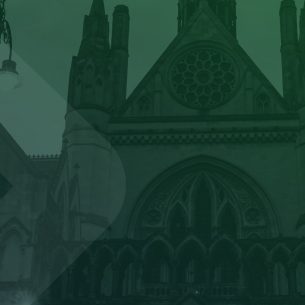Partner Richard Cannon featured in The Law Society Gazette’s ‘Lawyer in the News’ in relation to the Corey De Rose case.
Richard’s profile was published in The Law Society Gazette Magazine, 11 February 2022, and can be found here.
Thoughts on the case:
“It is a significant case in terms of the application of the law in US extradition requests in the UK. It demonstrates that the UK Courts are prepared to protect vulnerable people when their extradition is sought to the US.
The Court found for the defence on all three grounds that we submitted, (i) that it would be oppressive to extradite because of our clients’ mental condition, (ii) that it would not be in the interest of justice to try him in the US against being tried in the UK (the forum bar) and perhaps most significantly in terms of precedent, (iii) that extradition would not be compatible with his right to a family life as enshrined in the Human Rights Act. The US government has decided not to appeal the decision.
The case exposed a harsh and tremendously difficult question which the Court had to grapple with. It having been accepted that extradition would result in a high risk of suicide – the Court had to consider a wide range of factors and legal questions in its determination, but at its heart the question was the balancing act between the risk to life for our client that extradition would bring versus the need for “justice being seen to be done”.”
Dealing with the media:
‘The case touches multiple trigger points for media interest. US/UK extradition is always newsworthy, plus the case has a connection to hacking and cybercrime. For me the primary role of a lawyer when dealing with the media is to protect your client, both in terms of the accuracy of the content in the press but also as a buffer for them. There has been lots of press interest in the case and we have been happy to assist. It’s an important case and whilst facts matter you need to recognise that you can’t control the opinion of any news source creeping into their reporting, especially when dealing with cases in criminal justice system.”
Why I became a lawyer?
“Apparently, my teacher at primary school described me as “very logical”. I wanted to study law (which I did with politics) but I can’t actually remember taking the positive decision to become a lawyer. I suppose it suits my skills– I like to think I can get to the heart of an issue pretty quickly. I have always got worked up when I encounter abuse of power by those in authority and I have always had empathy for those whose lives my work brings me into contact with.”
Career Highlight:
“I think the answer to this depends on when I am asked. There are a number of cases over the years that I am really honoured to be part of and (I hope quietly) proud of my contribution. This case will be one of them.”
Career Low:
“Quite literally a career low. I had just qualified and was making one of my first appearances as an advocate at Richmond Youth Court (which has now been sold off). I jumped to my feet with enthusiasm to introduce myself to the Magistrates, and went to sit down blissfully unaware that the seat was sprung and needed to be pushed back down. I gracefully disappeared from view under the desk with my young client seated in the row behind me finding it all very funny.”





